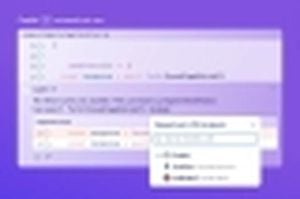As Poland prepares for the Matura exams in 2025, students are facing significant changes that could impact their performance. The Matura, a crucial examination for high school graduates, will see a shift in its structure and assessment methods, according to recent announcements from educational authorities.
One of the most notable changes is that the exams will now be based on the requirements of the core curriculum rather than solely on exam requirements. Professor Robert Zakrzewski, speaking on the podcast "Szkoła na nowo," emphasized that this shift means the exam papers will assess a broader spectrum of knowledge and skills outlined in the core curriculum. However, he reassured students that this does not necessarily mean the exams will be more challenging. In fact, the Minister of Education has shortened the scope of the core curriculum, which will be reflected in the exam papers, potentially making the Matura in 2025 easier than in previous years.
Another significant change involves the assessment process itself. Some exam papers may now be evaluated by two assessors, allowing for a more comprehensive review of students' work. This adjustment comes after a law signed by the president in December 2024, which permits the use of verifiers in the Matura exam checking system. This new approach aims to enhance the reliability and fairness of the evaluation process.
The introduction of an e-assessment system is also underway, which is gradually being integrated into the Matura exams. Currently, this system is used for language exams in Russian and German, and there are plans to implement it for the mathematics exam as well. Professor Zakrzewski noted that while efforts are being made to include e-assessment for mathematics this year, it is still uncertain whether it will be ready in time.
As for the specifics of the Matura 2025 schedule, written exams are set to take place from May 5 to May 22, while oral exams will occur from May 9 to May 24. For those needing to retake the exams, additional written sessions are scheduled for June 3 to June 17, with results announced on July 8, 2025. The retake exams are planned for August 19 and 20, with results available by September 10.
Students are particularly anxious about the mathematics exam, which is scheduled for May 6, 2025, at 9:00 AM. They will have 170 minutes to complete the basic level mathematics Matura. To prepare, students should ensure they have the required materials, including a pen with black ink, a ruler, a compass, a simple calculator, and selected mathematical formulas.
In addition to mathematics, the English Matura exam is also undergoing changes that could affect students' performance. Scheduled for May 7 at 9 AM, this year's exam will feature a new structure that may prove to be more challenging. The easiest task, which assessed listening comprehension through a true-false format, has been removed and replaced with an open task. This change raises concerns among educators and students alike about the increased difficulty of the exam.
Anna Klisz, an English teacher and author of Matura courses, highlighted that the written expression component will now require students to draft an email or a blog post, increasing the word limit from 80-130 to 100-150 words. She emphasized the importance of content quality, noting that poor content could negatively affect scores in other categories.
In total, students will face seven closed tasks, one semi-closed/semi-open task, and four open tasks, including the written statement. The total score available is 60 points, with 34 points allocated for closed tasks and 26 for open tasks. Klisz advises students to focus on mastering the types of tasks that have historically posed challenges, particularly those related to lexical and grammatical transformations.
Despite these changes, Klisz remains optimistic about students' ability to succeed. She suggests that by reviewing essential grammar points, such as the Present Perfect tense, conditional structures, and gerund and infinitive constructions, students can significantly improve their chances of achieving higher scores. She also recommends practicing with various task types, especially the open-ended ones, to build confidence and competence.
As the Matura exams approach, students are urged to prepare thoroughly and adapt to the new requirements. The changes in assessment methods and exam structures may seem daunting, but they also present an opportunity for students to demonstrate their knowledge and skills in a more comprehensive manner. With the right preparation, the Matura exams could become a platform for showcasing their capabilities rather than merely a hurdle to overcome.
In summary, the Matura 2025 exams are set to bring about significant changes that could reshape the way students approach their studies. With a focus on the core curriculum, a dual-assessment system, and the gradual introduction of e-assessment, students will need to adapt quickly to these new expectations. As they prepare for the challenges ahead, understanding the requirements and practicing effectively will be key to their success.







